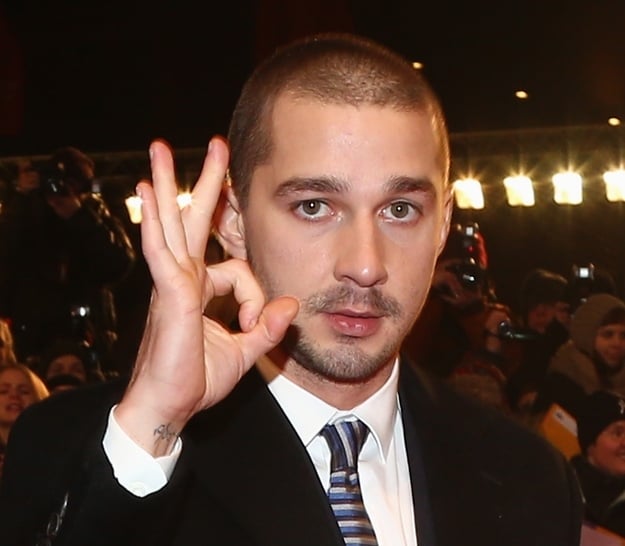Actor Shia LaBeouf is best known for his roles in the Transformers movies as well as other major Hollywood films. But while his career in front of the camera has been overwhelmingly successful, his foray into being behind the camera has hit a fairly significant speed bump.

However, almost immediately after posting, the 11-minute film drew controversy not for its subject matter, but for its similarities to an earlier work, namely “Justin M. Damianq”, a 2007 graphic novel written and drawn by artist Daniel Clowes.
The evidence against LaBeouf, who wrote and directed the film, was fairly damming. Not only were the plots very similar, both stories following a film critic struggling with the fact he might have to pan the latest movie by a filmmaker he idolizes, but many of the visuals were the same and even some of the dialog appeared to be nearly identical.
LaBeouf quickly pulled down the film and took to Twitter where he offered an apology to Clowes. However, the apology only served to stoke the flames as the first few tweets in his initial apology appear to have been copied near verbatim from a Yahoo Answers reply.
But even that wasn’t the end of of it for LaBeouf. He posted a set of new apology tweets and, in those, is accused of plagiarizing apologies from Tiger Woods, Robert McNamara and Kanye West.
In the meantime, Clowes is said to be looking into the possibility of suing LaBeouf over the short film. If that happens, LaBeouf’s own words might be used against him because, in his apologies, LaBeouf has admitted to using Clowes’ work as “inspiration” and said that, “In my excitement and naivete as an amateur filmmaker, I got lost in the creative process and neglected to follow proper accreditation.”
However, for LaBeouf, much of the damage may already be done. The news story has already drawn a great deal of negative attention toward LaBeouf. Some are wondering if LaBeouf has psychological problems, is completely clueless or whether he is engaged in some kind of intentional trolling.
The confusion, quite frankly, is understandable.
While 2013 has provided several excellent examples of how not to respond to allegations of plagiarism, including Rand Paul and Marc Driscoll, they both, at the very least, were careful to avoid anything that could be remotely seen as plagiarism in the aftermath of the allegations.
LaBeouf’s original plagiarism was more than brazen enough. He lifted content from one of the best-known graphic novel artists of all time and used it in a short film he published online. Even worse, it was no subtle plagiarism, in fact, it was described by Clowes’ publisher as like “he used the comic as a direct script and storyboard.” There is simply no way a reasonable person could think he would get away with the reuse unnoticed.
However, it’s LaBeouf’s responses that are truly head-scratching. In most cases, his sources were no less well known and his forum, Twitter, no less public. Further, he had to be aware that his responses would be scrutinized considering the original allegations to him. It does almost feel like he wanted to get caught or as if he were trying to make some broader statement about plagiarism and appropriation.
But if Labeouf is making such a statement, it’s getting lost in the outrage of his actions. LaBeouf has found few defenders online and, those who have risen up to his aid raise questions about whether his plagiarism was illegal, not whether it was wrong.
Perhaps most interesting though is that this isn’t LaBeouf’s first brush with plagiarism. In February the actor was accused of plagiarizing his apology to Alec Baldwin after he abruptly left the production of the movie “Orphans”. Though the plagiarism, which involved several unattributed and unquoted paragraphs from a 2009 article in Esquire, was originally in a private exchange, LaBeouf “leaked” the exchange on Twitter.
Though what exactly is going on isn’t clear, LaBeouf clearly is not your run of the mill celebrity plagiarist. His history, his actions and his response are certainly out of the ordinary.
But regardless of his reasons, it’s likely that these allegations are going to stick with LaBeouf for some time. Not only was he already a polarizing figure in Hollywood, but the severe and repeated allegations against him will not be quickly forgotten, even by a public that has, time and time again, shown an ability to forget plagiarism scandals and move on.
LaBeouf’s actions are simply too severe and too bizarre to be quickly forgotten.
Related
10 Years After Jayson Blair, Struggles with Plagiarism Remain
Related
Topics: Current Events